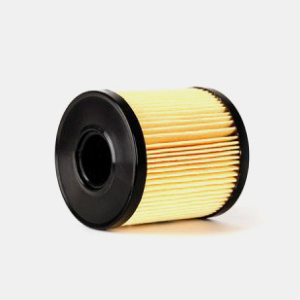-
 Afrikaans
Afrikaans -
 Albanian
Albanian -
 Amharic
Amharic -
 Arabic
Arabic -
 Armenian
Armenian -
 Azerbaijani
Azerbaijani -
 Basque
Basque -
 Belarusian
Belarusian -
 Bengali
Bengali -
 Bosnian
Bosnian -
 Bulgarian
Bulgarian -
 Catalan
Catalan -
 Cebuano
Cebuano -
 China
China -
 Corsican
Corsican -
 Croatian
Croatian -
 Czech
Czech -
 Danish
Danish -
 Dutch
Dutch -
 English
English -
 Esperanto
Esperanto -
 Estonian
Estonian -
 Finnish
Finnish -
 French
French -
 Frisian
Frisian -
 Galician
Galician -
 Georgian
Georgian -
 German
German -
 Greek
Greek -
 Gujarati
Gujarati -
 Haitian Creole
Haitian Creole -
 hausa
hausa -
 hawaiian
hawaiian -
 Hebrew
Hebrew -
 Hindi
Hindi -
 Miao
Miao -
 Hungarian
Hungarian -
 Icelandic
Icelandic -
 igbo
igbo -
 Indonesian
Indonesian -
 irish
irish -
 Italian
Italian -
 Japanese
Japanese -
 Javanese
Javanese -
 Kannada
Kannada -
 kazakh
kazakh -
 Khmer
Khmer -
 Rwandese
Rwandese -
 Korean
Korean -
 Kurdish
Kurdish -
 Kyrgyz
Kyrgyz -
 Lao
Lao -
 Latin
Latin -
 Latvian
Latvian -
 Lithuanian
Lithuanian -
 Luxembourgish
Luxembourgish -
 Macedonian
Macedonian -
 Malgashi
Malgashi -
 Malay
Malay -
 Malayalam
Malayalam -
 Maltese
Maltese -
 Maori
Maori -
 Marathi
Marathi -
 Mongolian
Mongolian -
 Myanmar
Myanmar -
 Nepali
Nepali -
 Norwegian
Norwegian -
 Norwegian
Norwegian -
 Occitan
Occitan -
 Pashto
Pashto -
 Persian
Persian -
 Polish
Polish -
 Portuguese
Portuguese -
 Punjabi
Punjabi -
 Romanian
Romanian -
 Russian
Russian -
 Samoan
Samoan -
 Scottish Gaelic
Scottish Gaelic -
 Serbian
Serbian -
 Sesotho
Sesotho -
 Shona
Shona -
 Sindhi
Sindhi -
 Sinhala
Sinhala -
 Slovak
Slovak -
 Slovenian
Slovenian -
 Somali
Somali -
 Spanish
Spanish -
 Sundanese
Sundanese -
 Swahili
Swahili -
 Swedish
Swedish -
 Tagalog
Tagalog -
 Tajik
Tajik -
 Tamil
Tamil -
 Tatar
Tatar -
 Telugu
Telugu -
 Thai
Thai -
 Turkish
Turkish -
 Turkmen
Turkmen -
 Ukrainian
Ukrainian -
 Urdu
Urdu -
 Uighur
Uighur -
 Uzbek
Uzbek -
 Vietnamese
Vietnamese -
 Welsh
Welsh -
 Bantu
Bantu -
 Yiddish
Yiddish -
 Yoruba
Yoruba -
 Zulu
Zulu
Exploring the Versatile Applications and Benefits of Industrial Mesh in Various Industries
Understanding Industrial Mesh Applications, Benefits, and Types
Industrial mesh is a versatile material that plays a crucial role in various sectors, including construction, manufacturing, agriculture, and filtration. Its unique structure, comprising a network of interwoven strands or wires, enables it to serve multiple functions, from providing structural support to facilitating airflow or filtering particles. This article explores the different applications, benefits, and types of industrial mesh.
Applications of Industrial Mesh
1. Construction and Architecture In the construction industry, industrial mesh is commonly used in concrete reinforcement. Steel mesh panels are embedded in concrete to increase tensile strength and prevent cracking. Additionally, mesh screens serve as safety barriers, preventing debris from falling and protecting workers on site.
2. Filtration Systems Industrial mesh is essential in various filtration applications. From water treatment facilities to chemical processing plants, perforated mesh is utilized to separate solid particulates from liquids or gases. The mesh’s customizable aperture size makes it suitable for different filtration requirements.
3. Agriculture In agriculture, mesh is employed in various ways, such as in greenhouses, where it provides shading while allowing light and ventilation. It also serves as fencing to protect crops from animals and pests. Furthermore, mesh is used in soil erosion control, where it stabilizes soil structures.
4. Manufacturing The manufacturing sector relies heavily on industrial mesh for processes like screen printing and as conveyor belts in material handling. Its durability and ability to withstand harsh conditions make it ideal for industries that require robust and reliable materials.
5. Safety and Security Industrial mesh is often used in safety applications such as guardrails, safety nets, and security fencing. The strength and visibility of mesh material ensure that areas remain secure without obstructing views, making it a practical choice for industrial workplaces.
Benefits of Industrial Mesh
The use of industrial mesh offers several advantages
industrial mesh

- Durability Most industrial meshes are made from high-quality materials such as stainless steel, which resists corrosion and wear. This durability extends the lifespan of products and reduces maintenance costs.
- Versatility Industrial mesh can be tailored to fit a wide array of applications. Different materials, wire gauge, and mesh patterns allow for customization based on specific needs, making it a flexible solution for diverse environments.
- Cost-Effectiveness The manufacturing process of mesh materials can be more efficient compared to solid materials. This not only reduces material costs but also lowers shipping expenses due to lighter weight and adaptable shapes.
- Enhanced Airflow and Lighting In applications like agricultural greenhouses, industrial mesh allows for efficient airflow and adequate light penetration, promoting plant growth while protecting plants from physical damage.
Types of Industrial Mesh
1. Welded Wire Mesh This type is created by welding cross wires to vertical wires at the intersection points, providing a strong and stable structure. It is widely used in construction and fencing.
2. Chain Link Fencing A specific form of woven mesh that provides security and visibility in sports fields, parks, and industrial sites.
3. Expanded Metal Mesh This mesh is made by slitting and stretching a metal sheet to create diamond-shaped openings. It is often used for anti-slip surfaces and walkways.
4. Perforated Metal Sheets Characterized by a pattern of punched holes, these sheets provide excellent ventilation while still offering structural integrity. They are commonly used in decorative applications, filtration, and soundproofing.
In conclusion, industrial mesh is an indispensable component of many industries, offering durability, versatility, and a cost-effective solution for various applications. Understanding the different types of fiberglass can help businesses select the most suitable option for their needs, optimizing performance and ensuring safety across multiple sectors.
-
Shipping Plastic Bags for Every NeedNewsJul.24,2025
-
Safety Netting: Your Shield in ConstructionNewsJul.24,2025
-
Plastic Mesh Netting for Everyday UseNewsJul.24,2025
-
Nylon Netting for Every UseNewsJul.24,2025
-
Mesh Breeder Box for Fish TanksNewsJul.24,2025
-
Expanded Steel Mesh Offers Durable VersatilityNewsJul.24,2025











